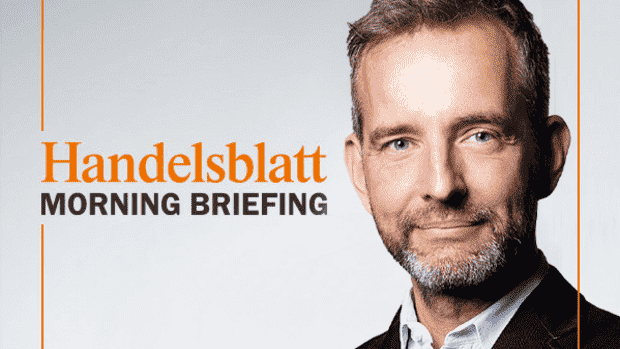In addition to climate change, the shortage of skilled workers is probably one of the best-predicted crises in German history. The number of births in Germany peaked in 1964, after which it fell sharply.
Now the baby boomers of the 50s and early 60s are gradually retiring. Most of the young workers they could replace were never born. The rest is math – pretty simple compared to the models used by climatologists.
And yet it seems to be astonishing that all forecasts have come true and that there is actually a shortage of workers on every corner in Germany. Quite similar to climate change, the effects of which we first have to see in order to really understand it. In contrast to climate change, however, the labor shortage also has pleasant sides – for employees who have in-demand qualifications, as Handelsblatt career expert Lazar Backovic reports.
By 2030, so many employees from the baby boom cohorts will be retiring that around three million full-time employees will be missing. By then, around 1.6 million people will no longer find employment in their previous industries due to digitization or decarbonization. On the other hand, there is a huge need for more than a million IT specialists.
Teachers, doctors, nurses and engineers are also likely to be wanted in the hundreds of thousands by the end of the decade. That is the result of the “Future of Job” report by the Boston Consulting Group.
For the Handelsblatt, the strategy consultancy and the salary exchange Salary.de have identified a total of 35 job profiles that will be particularly in demand in 2030 and promise high pay. Copywriters are not among them, too bad. But robotics engineers and IT security specialists. Likewise, general practitioners and dentists. Teachers also remain in demand (although not necessarily top-notch paid).
Conclusion: Those who start their working life now, can do a little something and are willing to learn new things from time to time, have brilliant career prospects. The dystopian talk of the end of work, of computers and robots taking our jobs away from us en masse, has so far still proven to be wrong in relation to the entire world of work.
In the past few years, NATO resembled an old-fashioned open-plan disco somewhere far out on the federal highway: It was a long time since we had really fun with each other. But where else should you go on Saturday night?
Now NATO is suddenly a really hip club again – thanks to Vladimir Putin. Its threat, underpinned by 100,000 deployed soldiers, to invade Ukraine if NATO does not rule out any expansion to the east, makes the western military alliance appear as attractive as “Studio 54” in its prime.
In Finland, both the President and the Prime Minister have emphasized in their New Year’s speeches that Moscow will not deny its right to seek NATO membership if necessary. In Sweden, the opposition leader is now demanding a similar statement from the government in Stockholm.
And the unrest in Kazakhstan also indirectly made NATO’s star shine brighter: They impressively show how opportunistically the Kremlin can help an allied autocrat in the fight against its own citizens if it serves Russian interests. On Wednesday morning, a Putin spokesman warned foreign forces against interfering in the conflict in Kazakhstan. Less than 24 hours later, Russian paratroopers landed in the neighboring state.
Officially, this is the first deployment of the alliance for collective security (ODKB) concluded between Russia and the Central Asian states. According to its own statutes, this should only be active in the event of an external threat. And so the Kremlin and the Kazakh head of state claim that the West would overthrow the former Soviet republic. There is not even the slightest evidence for this, analyzes our Eastern Europe expert Mathias Brüggmann.
But: It is not a position of strength from which Putin acts here. Kazakhstan is Moscow’s most important ally, says Russia and Central Asia expert Stefan Meister from the German Society for Foreign Policy. The Kremlin is “afraid that it might lose Kazakhstan”.
Before the deliberations of the federal and state governments Further corona measures are emerging as a result of the pandemic. Because of the rapidly expanding Omikron variant, access to cafes, restaurants and bars should in future only be possible for vaccinated and convalescent people with a test. Exceptions apply to people with a booster vaccination.
This emerges from a draft resolution for the Prime Minister’s Conference with Chancellor Olaf Scholz (SPD) and the country leaders on Friday. The rule should apply from January 15th, but the date is still disputed, reports my colleague Jürgen Klöckner. In addition, the quarantine and isolation times are to be adjusted in order to keep staff losses to a minimum, especially in the critical infrastructure. And if you want to read all of this in the original, we offer you the draft resolution for download here.
And then there is the Serbian tennis professional Novak Djokovic, number one in the world rankings, who would like to take part in the Australian Open in Melbourne – but who is threatened with expulsion there due to his unclear corona vaccination status.
While Djokovic is legally fighting for his entry from a quarantine hotel, the outrage in Djokovic’s homeland is causing waves. Serbian President Aleksandar Vucic said on Instagram that he had told the tennis professional over the phone that “all of Serbia is with him”. It would “take every measure so that the abuse of the best tennis player in the world stops as soon as possible”.
We are very happy that Serbia has no aircraft carriers, otherwise they would have been heading for the Pacific a long time ago to force Djokovic to participate in the tournament.
I wish you a day when you don’t have to force your luck.
Best regards
Her
Christian Rickens
Head of Text Handelsblatt
You can subscribe to the Morning Briefing here:
